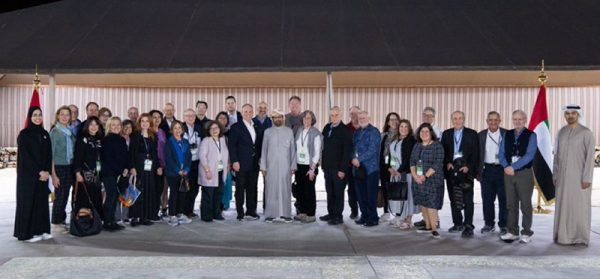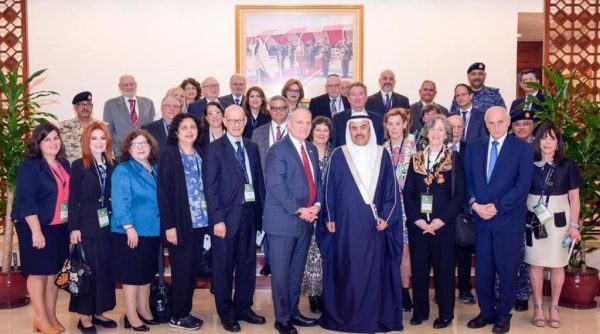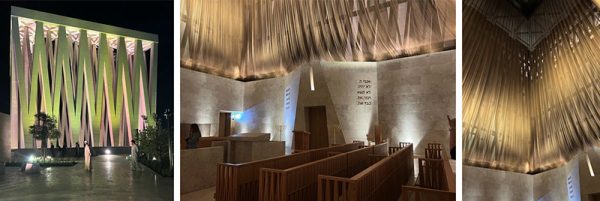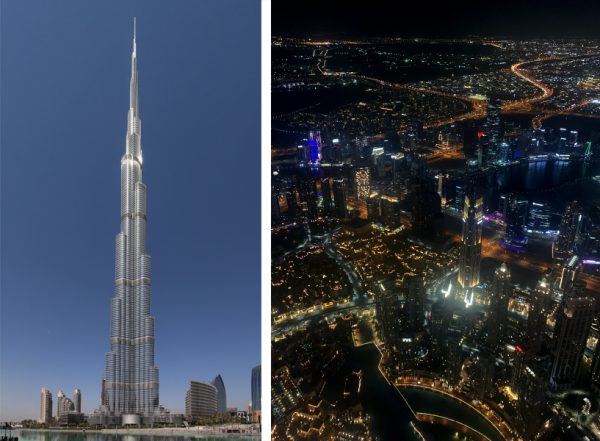By Doron Krakow
Oseh Shalom | עשה שלום
Last weekend I marked my father’s fourth yahrzeit (the anniversary of his death). Born on the Lower East Side of Manhattan in 1926, my dad grew up during the Great Depression and the rise of Nazi Germany. European Jewry’s descent into the depths of hell awakened in him a passionate commitment to the necessity of safeguarding the future of our people and led him to increasing involvement in the Zionist movement as a follower of Zeev Jabotinsky. Precluded from service in the U.S military owing to damage caused by a childhood ear infection, he took part in Israel’s War of Independence as a fighter in the Irgun Zvai Leumi. In 1949 he returned to New York to look after his ailing parents.
The fourth of five children, I was raised to be an active citizen of the Jewish people; every family occasion a gathering of my parents’ friends from the movement and each evening at the dinner table, a chance to listen to my dad extol the virtues of the miraculous modern State of Israel. He remained, until his last days, steadfast in his determination to help those he could touch to remain mindful of the precariousness of Jewish life and the responsibility to take part in our people’s grandest endeavor since ancient times—ensuring Israel’s safe, secure place in the modern world.
I lit the memorial candle and recited the Mourner’s Kaddish just after arriving in Abu Dhabi, where—together with Gary E. Jacobs, JCC Association’s immediate past board chair—I was honored to represent the JCC Movement on a Conference of Presidents of Major American Jewish Organizations mission. Over the course of five days, amidst a seemingly limitless series of often breathtakingly, remarkable experiences and encounters, I found myself thinking about him again and again. He died in January 2019, well before the announcement of the Abraham Accords, and at a time in which the kind of experience I just had still seemed unimaginable.
As part of the mission, we met with senior government officials in both the UAE and Bahrain, including members of the royal families, each one uniformly underscoring their embrace of and commitment to the accords. They emphasized that where peace with Israel was concerned, there is no reverse gear and no brakes. A total commitment to more—greater engagement between Israel and the wider Arab world and the embrace of opportunities among governments, the private sector, and, most importantly, people, upon whom the lasting impact of the accords is most dependent. It’s all new, but already trade between the UAE and Israel exceeds that with Japan, and Israel is expected to be among its 10 largest trading partners as soon as the end of this year. The UAE’s role as a trade and transit hub has opened vast new markets for Israel and is also becoming an impetus for the warming of relations with Israel’s longtime peace partners in Egypt and Jordan.


Our visit coincided with another historic occasion, the grand opening of the Abrahamic Family House. Inspired by a 2019 visit to Abu Dhabi by Pope Francis, it was initially conceived as a single campus to house both a mosque and a church. At the insistence of His Highness Sheikh Mohammed Bin Zayed, president of the UAE, a synagogue was added to the plan—and yesterday, in the presence of leaders of all three religious communities and representatives of the Vatican and the international Jewish community, it opened its doors. Three distinct houses of worship of equal size and dimensions and a shared interfaith welcome and education center will receive worshippers and visitors alike. The Moses Ben Maimon Synagogue is the first newly constructed synagogue in the Arab world in more than a century, and a newly commissioned sefer Torah—a gift of Sheikh Mohammed Bin Zayed—is expected to arrive on Sunday. (Watch this video for scenes of the opening ceremonies.)

Photos courtesy of Rabbi Jonah Pesner, director of the Religious Action Center of Reform Judaism.
There’s more. A top minister in the Bahraini government, a member of the royal family, paid tribute to two leaders in the region who made the ultimate sacrifice in the cause of peace, Egyptian President Anwar El Sadat and Israeli Prime Minister Yitzhak Rabin.
Israel’s quick and determined presence and support in Abu Dhabi, following Houthi terrorist attacks in January of 2022 that claimed three lives and injured several others, further cemented a growing kinship, even as the U.S. reaction was deemed largely disappointing by the UAE leadership.
Declarations of the Emirati commitment to equal rights are reflected in the presence of 20 women among the 40 members of the UAE parliament, several of whom we met. And both the UAE and Bahraini governments celebrate tolerance and diversity, exemplified by the mosaic of peoples and languages constituting the majorities in both populations. Each sees itself as sitting at the crossroads of the world and regards Israel as an ally and strategic partner.
My father’s intellectual curiosity would have been stoked by the advances in science and technology we witnessed and experienced, including the extraordinary Mohammed Bin Rashid Space Centre in Dubai. Trained there, the first Arab astronaut to serve aboard the International Space Station will take off from the Kennedy Space Center in Florida next month.

Having spent his career in urban planning and development for the City of New York, my dad would have been overwhelmed by the modern architecture and design, wide boulevards, high-tech transportation system, and the extraordinary pace of change, evolution, and growth we saw. He was part in the effort that made possible the creation of New York’s Battery Park City and construction of the World Trade Center towers. I wonder what he would have thought about the view from the 153rd floor of Burj Khalifa.

Perhaps what would have impressed him the most were a couple of seemingly private moments. A member of the royal guard greeted me in Hebrew, shalom aleichem | שלום אליכם | welcome, upon my arrival at one government ministry. Later, as I made my way out, another member of the guard bid me L’hitraot | להתראות | See you later.
Real progress in the Middle East often seems imperceptible—and then, as when Sadat came to Jerusalem, all at once. Forty years later, a new generation of visionary leaders ushered in the era of the Abraham Accords. They came too late for my dad to see, but throughout his remarkable lifetime, he imparted to his children a deep appreciation for the millennia-long saga of the Jewish people. Against the backdrop of our extraordinary history, the progress we witnessed on the shores of the Arabian Gulf, a mere 75 years since the restoration of Jewish sovereignty in our ancestral homeland, came in the blink of an eye.
עוֹשֶׂה שָׁלוֹם בִּמְרוֹמָיו
הוּא יַעֲשֶׂה שָׁלוֹם עָלֵינוּ
וְעַל כָּל יִשְׂרָאֵל
וְאִמְרוּ: אָמֵן
May the One who creates peace on high
bring peace to us and to all Israel.
And we say: Amen.
Shabbat shalom.

Doron Krakow
President and CEO
JCC Association of North America

Seventy-five years ago this week, a delegation of 28 UJA (United Jewish Appeal) leaders from 16 U.S. cities arrived in Palestine following visits to displaced persons (DP) camps in Germany, Italy, and France, “in an effort to gain insights into the conditions of Jewish life in Europe and Palestine which makes necessary the $250,000,000 UJA campaign in America,” according to the Palestine Post. The delegation’s members expressed shock that almost three years after victory, the DPs still were living in camps little better than their former quarters in concentration camps.
A second UJA delegation on route from Tiberias to Haifa came under fire by Arab attackers as they crossed Wadi Rushmieh. Foreign correspondents from the New York Post and the Los Angeles Daily News were on the bus and reported that it was hit by more than 30 bullets, though there were no injuries.
And that’s the way it was…
Reader Interactions